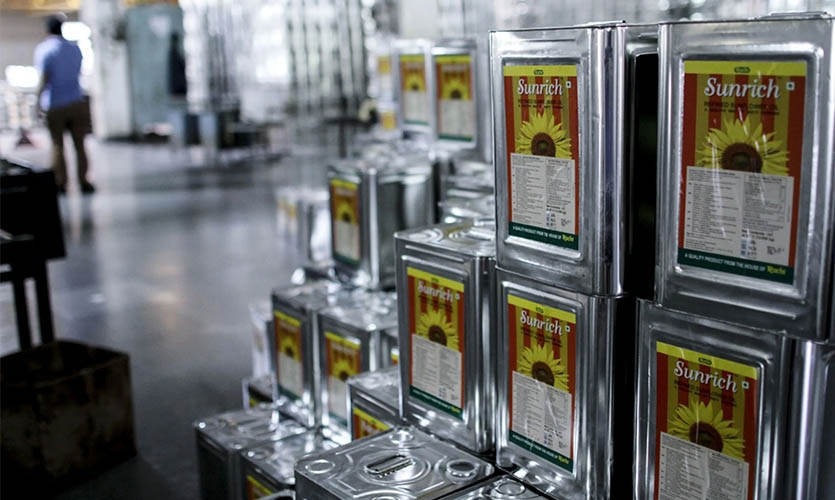Rating and research firm CareEdge has released a report titled ‘India’s Bid to Reduce Imports and Become ‘Atma Nirbhar’, which highlights India’s significant reliance on edible oil imports that could pose an issue to India’s national interest in the long run. The report says that it is imperative for India to become not only self-reliant, but also self-sufficient to the best extent possible via the ‘Atmanirbhar Bharat’ initiative. India needs to build its self-sufficiency as it is economically prudent and of strategic importance.
“The recent geopolitical crisis (in Ukraine is) causing restrictions in the import of edible oils, such as sunflower oil, adverse measures taken by major edible oil-exporting countries relating to the export of palm oil, increasing diversion towards biofuels are major challenges to an edible oil-importing country like India,” stated the CareEdge report. “Thus, it is desirable to increase domestic oil seeds production to reduce import dependency in an uncertain geopolitical environment amid the increasing “de-globalization” trend across the world,” it added.
India meets close to 55-60 percent of its vegetable oil needs through imports, and is the world’s second-largest consumer and number one importer of vegetable oil. Despite efforts taken to improve oilseed production, which has grown over the years, the production has lagged behind its consumption, keeping India reliant on imports. The share of imported edible oil against the total domestic edible oil consumption has increased from 52 percent during the financial year 2014, to 63 percent in 2016, before falling to 55 percent in 2021.
Despite a decline in the import volume, the import bill of vegetable oil increased to around 21 percent during 2020-21 over 2019-20, which further increased by 63 percent in FY22 over FY21. The increase is due to an increase in the prices of oil in the international market, coupled with a depreciation in the Indian currency. The report said, “This led to the outflow of valuable foreign currency and “import of inflation”. The major reasons for stagnant edible oilseed production in India were relatively low growth in the area under cultivation or acreage, and a stagnant crop yield. In comparison, world oil seeds production increased from 447 million tonnes in FY12, to 607 million tonnes in FY21, close to 1.5 times India’s growth. The report further read, “Subdued growth of oil seeds production in India (effectively low yield per ha) can also be attributed to the lower level of mechanisation of farming, as several studies suggest a direct correlation between farm mechanisation and crop productivity as the use of improved implements has the potential to increase productivity and reduce the cost of cultivation.”
In an attempt to bridge the gap, the government of India launched a centrally-sponsored scheme called the National Mission on Edible Oils. The scheme will be implemented jointly by the central and state governments, with a special focus on the northeast region and the Andaman and Nicobar Islands. The Centre plans to cover an additional area of 6.5 lakh hectares for oil palm by the year 2025-26 and fulfil India’s target of 10 lakh hectares. Crude palm oil production is speculated to increase to 11.20 lakh tonnes by 2025-26, and to 28 lakh tonnes by 2029-30, as per the research report.
Read more: All You Need To Know About The Tokenisation Of Credit And Debit Cards










